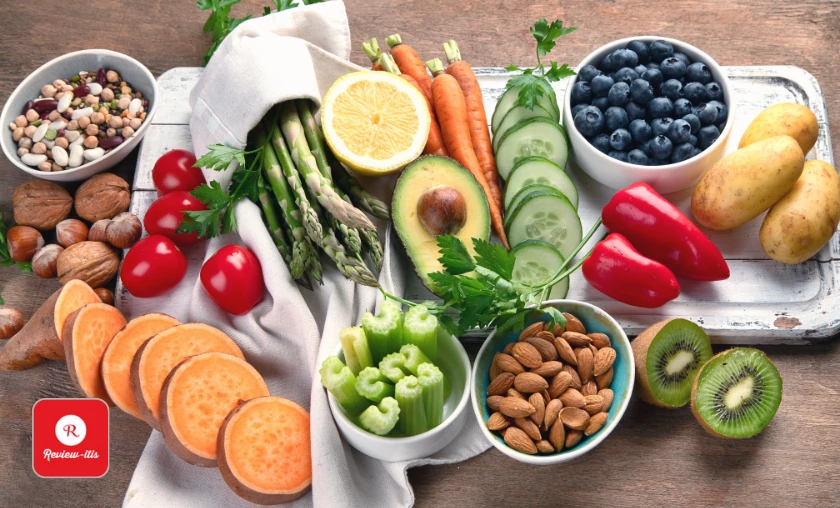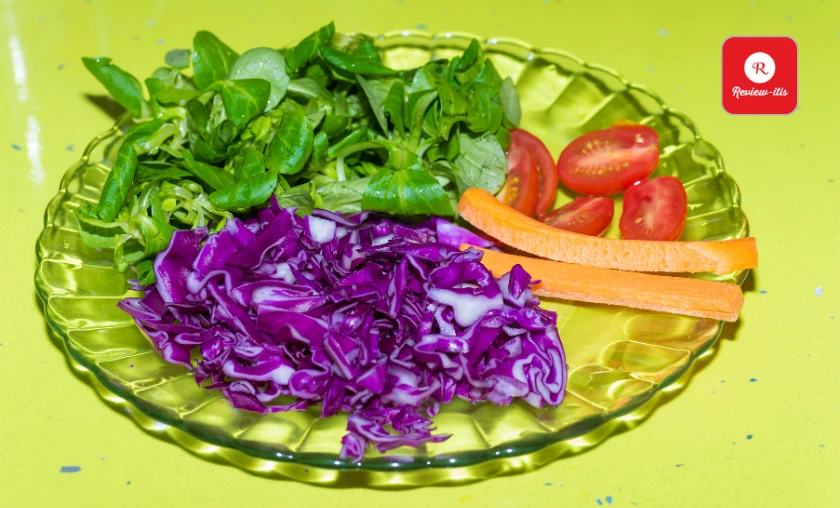Hey there! Did you know that teenagers have different nutritional needs than adults? Yup, it’s true. Here is the guide where you’ll know about that…
(1Trusted Source). During the period of puberty through early adulthood, their bodies go through rapid growth and development, which requires a steady supply of calories and nutrients on a daily basis.
Eating a diet high in nutritious foods can do wonders for their overall health, but not getting enough essential nutrients or calories can have a direct impact on their cognitive performance, mood, metabolic health, and more. Plus, if they establish unhealthy eating habits during adolescence, it can increase their risk of health complications later in life (2Trusted Source, 3Trusted Source).
Now, I get it – it can be tough for teens to follow a nutritious diet that provides their bodies with the necessary macro- and micronutrients. There are plenty of reasons for this, like food preferences, availability, as well as social and parental influences (1Trusted Source). And let’s not forget about the impact of mass media, including social media, which can have negative effects on body image and dietary intake.
With all these factors at play, it’s no wonder that many teens, along with their parents and caregivers, aren’t quite sure what constitutes a healthy diet and which foods they should be eating. That’s where this article comes in! I’m going to break down healthy eating for teens, including nutrient recommendations, how to build healthy meals, eating tips, and more. So let’s get started!
Table of Contents
Why is healthy eating important for teens?

Early adolescence happens between the ages of 10-14, while late adolescence occurs between the ages of 15-19 (1Trusted Source).
During adolescence, the body goes through rapid growth, including changes in body composition as well as genderal and cognitive development. Height, weight, muscle mass, and bone density increase significantly, and organs like the heart, brain, and liver grow in size. In fact, did you know that 50% of adult body weight is gained during adolescence? (1Trusted Source).
That’s why it’s so important to provide the body with optimal nutrition by choosing nourishing foods and consuming enough calories on a daily basis during this long period of growth and development. And there are plenty of reasons why teens should learn the importance of a healthy diet and understand how to fuel themselves appropriately, such as:
- If teenagers don’t take in adequate calories and nutrients, they can experience health complications like stunted growth, delayed puberty, menstrual irregularities, and other conditions (1Trusted Source).
- An inadequate diet can negatively affect mood, energy levels, and athletic and academic performance (4Trusted Source, 5Trusted Source, 6Trusted Source).
- Dietary habits established during adolescence can persist into adulthood, positively or negatively affecting health and disease risk.
So, it’s crucial for teens to get the nutrition they need to support their growth and development during adolescence.
Nutrient recommendations for teens

To support optimal growth and development, it’s important for teens to meet specific calorie and nutrient recommendations every day. These recommendations can vary based on factors such as your age, gender, and activity levels.
So, it’s essential to understand your individual nutritional needs to ensure that you’re providing your body with the right fuel to help you grow and thrive during this important stage of life.
A note on gender:
You may have noticed that the language used to present statistics and other data is often binary, with terms like “male” and “female” or “boys” and “girls” being used to describe study participants and clinical findings.
While we understand that these terms don’t necessarily represent all gender identities and experiences, it’s important to be specific when reporting on research data. For this reason, we use the same language that the studies we reference use.
However, we acknowledge that many sources don’t provide data on individuals who identify as transgender, nonbinary, gender nonconforming, genderqueer, agender, intergender, or genderless. If you need assistance understanding how the information in this article might apply to you or someone in your care, we recommend speaking with a qualified healthcare professional who can offer personalized support and guidance.
Calories

As adolescents go through a period of rapid growth, it’s crucial to supply their bodies with enough energy. The three macronutrients—protein, carbohydrates, and fat—provide the body with calories that fuel growth and development (7Trusted Source).
While boys and girls between the ages of 10-13 have similar calorie needs, boys require more calories from age 14 onwards, while girls’ calorie needs remain the same from ages 12-18.
To give you an idea of the current calorie recommendations for moderately active adolescents, the 2020-2025 Dietary Guidelines for Americans provide the following breakdown (7Trusted Source):
| 10 | Girls: 1,800, Boys: 1,800 |
| 11 | Girls: 1,800, Boys: 2,000 |
| 12 | Girls: 2,000, Boys: 2,200 |
| 13 | Girls: 2,000, Boys: 2,200 |
| 14 | Girls: 2,000, Boys: 2,400 |
| 15 | Girls: 2,000, Boys: 2,600 |
| 16 | Girls: 2,000, Boys: 2,800 |
| 17 | Girls: 2,000, Boys: 2,800 |
| 18 | Girls: 2,000, Boys: 2,800 |
| 19 | Girls: 2,200, Boys: 2,800 |
As a reminder, these are just estimates to provide a general idea of how much adolescents should eat at specific ages. Calorie needs can vary based on individual factors such as activity levels, so it’s possible that your teen may require more or fewer calories than what’s listed.
For instance, teenage athletes engaged in physically demanding sports may need to consume up to 5,000 calories per day to maintain their body weight (8Trusted Source).
While it’s understandable to be concerned about your teen’s calorie intake, it’s generally not recommended for kids to count calories. This practice can contribute to disordered eating behaviors, particularly among young people (9, 10Trusted Source). If you have concerns, it’s best to consult with a healthcare professional who can offer personalized guidance.
Macronutrients

Macronutrients, including protein, fat, and carbohydrates, are essential for optimal growth and overall health. Meeting daily requirements for each nutrient is crucial for a healthy body (1Trusted Source).
Current protein recommendations for adolescents aged 10–18 range from 0.38–0.43 grams per pound (0.85–0.95 grams per kg), depending on age and gender. However, some experts suggest that teens, especially those who are highly active in sports, require more protein than the current recommendations (11Trusted Source). This is because protein is necessary for proper growth and development, including muscle protein synthesis and skeletal growth (11Trusted Source). According to recent research, teenage athletes may need about 0.68 grams of protein per pound (around 1.5 g/kg) per day to replace the amino acid loss and to support growth and development (6Trusted Source).
It’s important to note that protein needs are highest for 11–14-year-old females and 15–18-year-old males. Nevertheless, it’s vital that all teens have a source of protein at every meal and snack (1Trusted Source). Additionally, teens need adequate amounts of carbohydrates and dietary fat. Their requirements for these nutrients, like protein, depend on factors like gender and activity levels.
In general, adolescents require 45–65% of total calories from carbs, 25–35% of total calories from fat, and 10–35% of total calories from protein (7Trusted Source). It’s also crucial for teens to consume enough fiber from foods like vegetables, fruits, beans, and nuts. Recommended fiber intake for teens ranges from 22–34 grams per day, depending on age and gender (7Trusted Source).
Micronutrients

Micronutrients like vitamins and minerals are essential for teens to maintain good health.
Iron and iron deficiency are more common in teenage girls than boys, with up to 16% of teen girls in the US being affected by iron deficiency (12Trusted Source, 13Trusted Source).
Vitamin D deficiency is also prevalent in teenagers, with studies suggesting that it affects 21-42% of teens in the US depending on factors like geographic location, skin color, body weight, and diet (14Trusted Source). Factors like having overweight or obesity, darker skin color, certain medical conditions, and spending little time outdoors can increase the risk of vitamin D deficiency (14Trusted Source, 15Trusted Source).
Since vitamin D is crucial for proper growth and development, it’s important for teens to have their vitamin D levels checked and treatment with supplements or high-dose injections if they are low or deficient (16Trusted Source).
Additionally, teenage diets are more likely to be low in other essential nutrients like zinc and calcium (17). It’s important to note that nutrient deficiencies are more likely to occur in teens who follow restrictive diets, such as vegan diets, teen athletes, teens with certain medical conditions, and those with eating disorders (18Trusted Source, 19Trusted Source, 20Trusted Source, 21Trusted Source).
Heads up:
It’s easy to feel pressure to do everything perfectly when it comes to nutrition, but this approach can actually do more harm than good.
If you or someone you know is constantly thinking about food or weight, feeling guilty about food choices, or following restrictive diets, it might be a sign of an unhealthy relationship with food or an eating disorder.
Eating disorders and disordered eating can affect anyone, regardless of their background or identity. These conditions have complex causes, which can include biological, social, cultural, and environmental factors, in addition to exposure to diet culture.
It’s important to seek help from a qualified healthcare professional, like a registered dietitian, if you or a loved one is struggling. Additionally, the National Eating Disorders Association offers free and low-cost resources, as well as anonymous helpline support via chat, call, or text.
SUMMARY
It’s crucial to keep in mind that calorie, macronutrient, and micronutrient needs vary based on factors like age, gender, and activity levels. Teens are particularly at risk of micronutrient deficiencies, including iron, zinc, calcium, and vitamin D.
How to Build Healthy Meals

Taking care of your body by eating nutritious foods is an excellent way to feel your best and keep your energy levels up so you can excel in school and enjoy your hobbies.
Unfortunately, many teens opt for quick and convenient foods like fast food, sweets, and packaged snacks to satisfy their hunger. While these foods can be enjoyed in moderation, it’s important for everyone, especially growing teens, to prioritize whole, nutrient-dense foods. for their overall health and well-being.
Which foods should be included in a healthy diet for teens?

For teens, it’s best to have consistent meals and snacks that are made up of healthy sources of protein, fat, and fiber-rich carbs.
Here are some examples of healthy foods that can be included in a teen’s diet:
- Non-starchy vegetables such as broccoli, leafy greens, peppers, cauliflower, asparagus, carrots, and zucchini.
- Starchy vegetables like potatoes, sweet potatoes, and butternut squash.
- Fruits such as berries, pears, apples, citrus fruits, pineapple, grapes, and bananas.
- Protein sources like fish, eggs, lentils, chicken, and tofu.
- Whole grains like brown rice, oats, quinoa, whole grain bread, and barley.
- Nuts and seeds like almonds, sunflower seeds, pumpkin seeds, and natural peanut butter.
- Beans and lentils such as chickpeas, black beans, kidney beans, and lentils.
- Healthy fats like olive oil, nut butters, avocados, egg yolks, full-fat yogurt, and cheese.
- Dairy and non-dairy substitutes like unsweetened yogurt, cheese, coconut milk, and cashew milk.
- Healthy snack foods like trail mix, hummus and vegetables, cottage cheese, and nut butter with fresh fruit.
When it comes to teen nutrition, prioritizing whole, nutrient-dense foods is crucial for supporting health and energy levels.
However, it’s important for teens to remember that it’s perfectly normal to enjoy their favorite less nutritious foods from time to time.
Sharing meals and snacks with loved ones is an important part of social interaction and celebrating special occasions, and it’s okay to indulge in these moments. It’s all about finding a balance that works for you and your individual needs and preferences.
How to Build Healthy Meals & Snacks

To create a nutritious and satisfying meal or snack, it’s important to include a balance of protein, fat, and fiber-rich carbs. This helps ensure that growing teens are getting the nutrients they need while staying fueled throughout the day.
Adding a source of protein to every meal and snack is especially important for teens. Protein is the most filling macronutrient, which means that it can help them feel satisfied and reduce the urge to snack between meals. Sources of healthy fats and fiber-rich carbs, like whole grains, starchy vegetables, and beans, are also crucial for teen health.
For example, a well-rounded breakfast could include scrambled eggs for protein, sliced avocado for healthy fat, and sautéed potatoes or fresh fruit for a carb source.
While it’s important for teens to eat a variety of fruits and vegetables, it’s also common for them to be picky eaters. Encouraging them to try new foods often can help expand their palate and increase their nutrient intake.
Research suggests that the more exposure you have to a food, the more likely you are to enjoy it. So, by trying new foods regularly, teens can ensure they’re meeting their macro- and micronutrient needs.
Should Teens Avoid Any Foods?

Hey teens, it’s important to know that you don’t have to avoid any food entirely unless you have allergies or medical conditions that require it. However, to maintain optimal health and prevent weight gain, heart disease, and even depression or anxiety, it’s crucial to limit some foods and beverages. Here are some examples of health conditions linked to sugary foods and drinks (26Trusted Source, 27Trusted Source, 28Trusted Source, 29Trusted Source):
- Psychological stress
- Symptoms of anxiety
- Symptoms of depression
- Obesity
- Heart disease
That’s why it’s essential to limit your intake of foods and drinks high in added sugars, such as sugary breakfast cereals, sweetened yogurt, pastries, cookies, candy, soda, energy drinks, sweetened coffee beverages, and ice cream.
It’s best to limit refined grains like white bread and ultra-processed foods like fast food and some packaged snacks. These types of foods have been associated with various health issues in teens, including metabolic syndrome (30Trusted Source, 31Trusted Source). Remember, the key is to consume a diet high in nutrient-dense foods while indulging in cookies, ice cream, and snacks occasionally.
SUMMARY
To keep energy levels up, it’s important for teens to have balanced meals and snacks. These should include protein, fat, and carbs to provide the necessary nutrients. While it’s not necessary for teens to avoid all sweets and treats, it’s important to limit their intake of ultra-processed foods and added sugars.
Eating Tips & a Basic Meal Plan for Teens

As a teenager, it’s easy to get caught up in school, sports, and social activities, and nutrition can sometimes fall by the wayside. But eating well doesn’t have to be complicated, nor should it mean giving up cultural favorites. The most important thing for teens to focus on is regular fueling. Skipping meals can negatively impact mood, energy levels, and academic and sports performance (32Trusted Source).
Typically, most teens require three meals per day plus a snack or two, depending on factors such as activity levels and body size.
However, extremely active teens who participate in multiple sports may require additional meals and snacks to maintain their weight. It’s important to choose meals and snacks that provide the right balance of protein, fat, and carbs, which can help ensure optimal nutrient intake.
To help get you started, here’s a 3-day basic healthy meal plan for teens, along with some snack ideas.
Every Teen is Different

As you may have noticed, this guide is intended as a starting point for a healthy meal plan for teens, but it’s not meant to be an exact prescription. It’s important to understand that every teen has different energy requirements, so we didn’t include specific serving sizes and calorie amounts.
If you’re unsure about how many calories your teen should consume, it’s always a good idea to talk to a healthcare professional like a pediatrician or a pediatric dietitian. They can give you personalized advice based on your teen’s specific needs and help you come up with a meal plan that works best for them.
And if you’re worried about costs of seeing a dietitian, know that many health professionals, including registered dietitians, accept health insurance and Medicaid. Additionally, some may be able to adjust their fees based on a sliding scale to make their services more affordable for you and your family.
Day 1
- Breakfast: An egg omelet made with whole eggs, spinach, and cheddar cheese provides protein and healthy fats to help fuel the day, while the spinach adds essential vitamins and minerals.
- Lunch: Grilled chicken wrap with Avocado, served with a side of mixed berries and a handful of almonds.
- Dinner: A nutritious meal option that includes stuffed peppers served over brown rice and a side of green salad.
- Snack: A simple and tasty snack option for teens is trail mix, which can be made by combining a variety of nuts, seeds, and dried fruit. Just be sure to choose unsweetened and unsalted varieties to keep added sugars and sodium in check.
Day 2
- Breakfast: A yogurt parfait with mixed berries, low-sugar granola, chopped almonds, and unsweetened yogurt.
- Lunch: A veggie wrap filled with hummus, accompanied by fresh fruit slices.
- Dinner: Juicy turkey burger, topped with fresh veggies, served with crispy sweet potato wedges and a refreshing mixed green salad”
- Snacks: Cherry tomato and mozzarella skewers served with chocolate-covered peanut butter and banana bites for a delicious and nutritious snack.
Day 3
- Breakfast: Banana oatmeal pancakes with chopped walnuts and berries, made with oats, eggs, and bananas for a high-protein meal
- Lunch: A bento box with your preferred selection of ingredients such as boiled eggs, edamame, turkey rolls, cheese slices, sliced vegetables, hummus, fresh fruit, and crackers.
- Dinner: Black bean and veggie burritos served with salsa and guacamole.
- Snack: Energy balls made with nutritious ingredients like oats, nut butter, dried fruits, and seeds for a satisfying snack.
It’s essential to keep your body hydrated throughout the day by drinking plenty of water, in addition to eating regularly.
Experts recommend limiting sugar-sweetened beverages like soda and sweetened fruit drinks and sticking to mostly water to meet your hydration needs. Of course, you may have your own dietary preferences that suit you best. For example, some of you may opt for a plant-based diet due to ethical or cultural reasons.
Eating patterns such as plant-based or Mediterranean-style diets can be healthy choices for you as long as they are well-rounded and provide you with the necessary calories, macronutrients, and micronutrients for optimal growth and development.
But please note that strict diets that eliminate entire food groups or restrict certain macronutrients or calories are generally not appropriate for you. Special diets like the ketogenic diet may be necessary under certain medical conditions like epilepsy, but only if prescribed and monitored by a medical professional.
In all other cases, following restrictive diets is neither necessary nor appropriate and may harm your physical and mental health and hinder your growth and development.
SUMMARY
Building healthy meals is not rocket science. Just make sure to choose balanced meals and snacks that provide your body with the nutrients it needs for optimal health.
It’s Important to Have a Healthy Relationship With Food and Your Body

I know that being a teenager can be tough, especially when it comes to feeling pressure to look a certain way. Unfortunately, exposure to social media can make this pressure even worse, increasing the risk of body dissatisfaction and body image disorders in teens. Social media often shows unrealistic body and beauty standards and promotes dangerous “diet advice,” which can be harmful to your physical and mental health.
It’s important to remember that your health should never be put at risk in order to lose weight or change your body. Your body will naturally change as you grow and develop, and it’s normal to experience fluctuations in body weight during adolescence. While it’s good to focus on fueling your body with nutritious foods and staying active, being overly concerned with your food choices, body weight, or activity levels can negatively affect your physical and mental health.
If you’re struggling with self-esteem, body image, or body weight, it’s important to talk to a trusted healthcare provider or another adult who can help you get the care you need. If you’re not comfortable talking to someone you know, there are resources like Teenline available to provide support and guidance.
SUMMARY
In summary, while it’s important to take care of your body through healthy eating and exercise, being restrictive with your food choices, body weight, and exercise regimen can harm your health. Remember, you are unique and beautiful just the way you are!
Conclusion
Hey there, teens! It’s important to remember that you need a steady supply of nutrients in order to feel your best. A healthy diet that includes regular meals and snacks made up of nutrient-dense foods is key to providing your body with the nutrients it needs for optimal health.
Not only that, but a nutritious diet can also support academic and sports performance and decrease the risk of health conditions like anxiety, obesity, and heart disease.
Healthy habits like fueling up with a variety of nutritious foods, staying active, drinking enough water, and maintaining a positive relationship with your body can all help keep you happy and healthy throughout your teenage years and into adulthood. So make sure to prioritize your health and take care of your body with nutritious foods and healthy habits.
For more amazing articles related to Health, Checkout Now with a click
To read more similar articles, click here.
Thanks for visiting our Website. If you appreciate our work, kindly show us some support in our comments section. 🙂